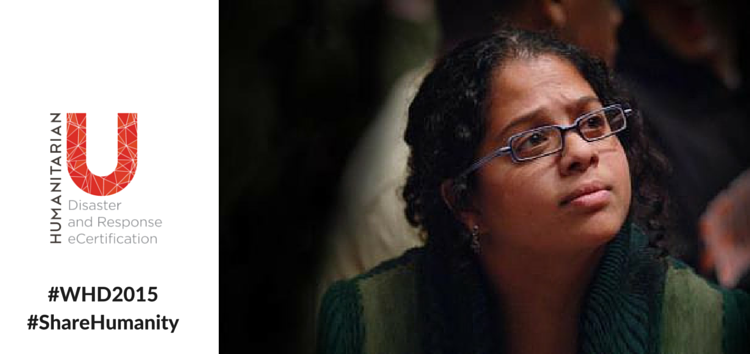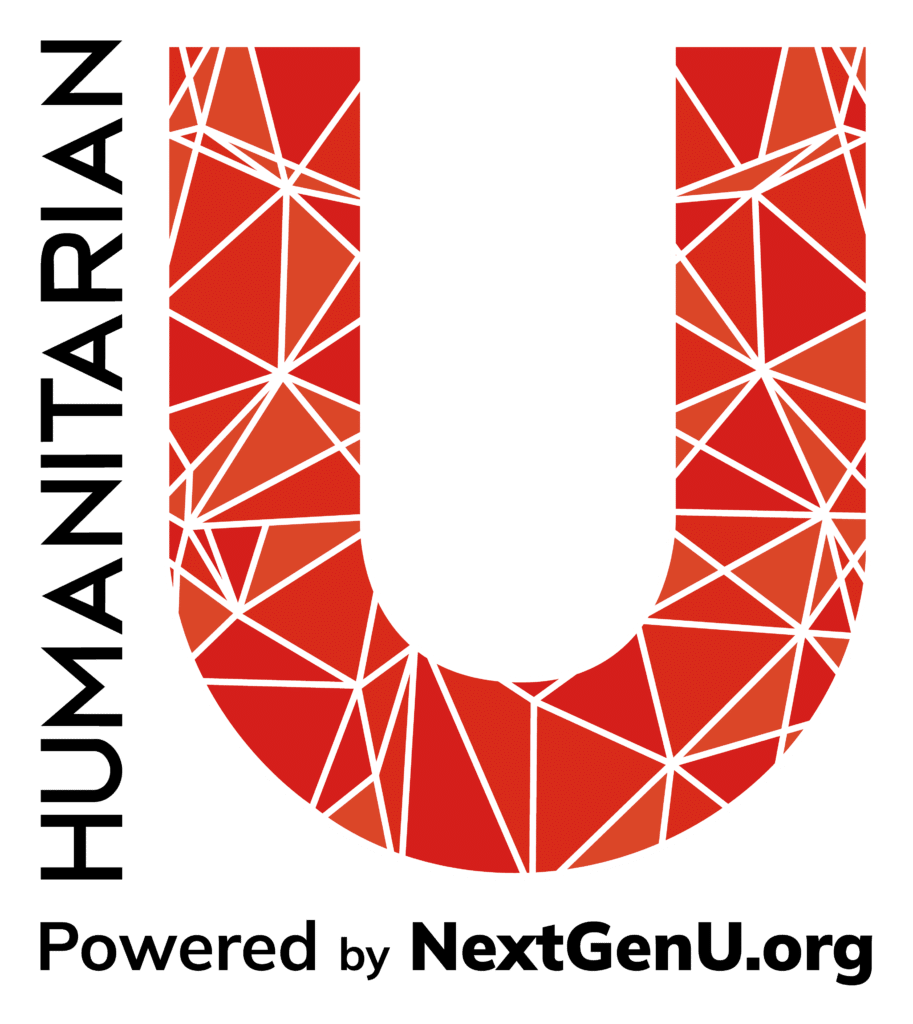When Hurricane Katrina hit New Orleans in 2005, Tanya (Toni) De Mello felt devastated. She had worked in the area years before, and the tragedy felt really close to home. With a group of students from Princeton University, she got herself down there, with the goal of helping in anyway she could.
The week spent in New Orleans changed her trajectory, and led her to work with the United Nations. “It was the first time somebody told me they could see me working in emergency relief. I didn’t know that was a career.” She later worked in Colombia, helping those being displaced by the civil war.
In her TEDx Talk, Tanya shares three tips for people who want to work with the United Nations:
- Do something.
- Contribute in your own way.
- Make sincere connections.
During our conversation, the Equity and Diversity Officer at University of Toronto shared many more pieces of advice and talked about what is it really like to be a humanitarian aid worker. Read the full interview.
Humanitarian U – How was the work you did with the United Nations?
Tanya (Toni) De Mello – It was some of the most powerful work I’ve done, because I felt like all of my skills were being put to use. That was really important to me. I was working in emergency relief; so the work was really at the forefront, really busy everyday. I found that very fulfilling, but also very challenging. It’s hard to be away from your family, to live in a conflict zone, to speak a different language every day, and to be in a community but knowing that you are an outsider.
HU – What was your daily work in Colombia like?
Tanya – We were responsible for an area with 32 thousand people – part of the 3 million people that were displaced by the civil war in Colombia. We did everything from trying to assess their needs, to working with the local government to meet those needs. Also, setting up ways to provide direct and indirect services.
HU – How was the work you did in New Orleans, years before?
Tanya – Well, New Orleans was when it all started. When hurricane Katrina hit, it felt really personal because I had worked in that area, in ward 9, years before. I was literally watching people drown, while the most powerful government in the world was doing very little to stop it, in my opinion.
I was really connected to New Orleans and to the people there. We did a bunch of very small things. We set up a medical clinic, cleaned up houses that had been flooded; we did participatory assessment where we talked to local people and asked about their needs, to later share them with the government; and we worked in a shelter giving out food. In a short time we were able to make a contribution, and that was really powerful.
While I was in New Orleans, somebody told me they could see me working in emergency relief. I didn’t even know that was a career.
HU – Was that your first experience in humanitarian work?
Tanya – I had had a lot of experience on the sidelines, working in organizations like Amnesty International and Human Rights Watch. I had worked in Canada, in challenging areas, with the First Nation’s community in the west and in Quebec. But it was my first time working in a zone that had been struck by such a big humanitarian crisis.
HU – What were your main feelings and impressions there?
Tanya – It was eye opening, as well as very challenging. Part of what was very hard was figuring out how you can be of help, rather than in the way.
One of the problems when doing this work is that you come in and you don’t have a good idea of the local context right away. So, you have all this ambition to help, but you really need to sit back and listen to others who have already been there, in order to understand what they are doing.
It is also exhausting. It’s hard not to work 24 hours a day when you see people that are in need. At the same time, this makes it very rewarding. Using your hands and being there just matters a lot.
HU – What advice would you give to someone going into the field for the first time?
Tanya – It’s really important that you have patience. It takes a little while until you find a way to help that will mean less work for other people. Saying “what can I do? What I do?” is not as helpful as saying “I saw you have many people cleaning up houses, is that something I can help with?” or “I know a foreign language, can I help you translate?”. Offering your skills in that way makes a real difference.
Figure out ways that you can add value and that aren’t very costly to the local team. They must realize that you are there to work, and not just waiting around for directions, and not getting frustrated. This makes it more likely that they will use your help.
It was different though when I worked for the UN. We had a very specific mandate. We had resources, infrastructure, things were set up for us. In this kind of organizational structure it’s much easier to work. You go in knowing what you have to accomplish, and how much money you have to do it. So you just do it. That helps a lot.
HU – Is there something you wish you had known before going to the field?
Tanya – I wish I had been more patient in the beginning. I’m somebody who loves to jump in and get started. But, it takes a little time to be able to do that.
Also, the more you work with local organizations that know the ground and the work, the further you will understand what’s going on. I sense that external organizations and even national organizations don’t have the same grasp. So, make sure to have contact with the local organizations.
One other thing I wish I had known is that the work is really meaningful but also very challenging. It takes a huge toll in your personal life, and it’s emotionally very draining. It can be very lonely. Everyone wants to hear about the extremes. They want to hear that you had the most amazing day or the worst day of your life. But not many people realize that most days are spent in between. Nobody wants to hear about those days. Sometimes humanitarian work is so sensationalized that we don’t realize that it is a very hard field to be in.
HU – How did humanitarian work impact you personally and professionally?
Tanya – It opened my eyes to a lot of realities in the world, first hand. It was very hard to be away from home, to be working as much as you do. Also, to see situations where you can make some impact but realistically you know those situations have been going on for a long time and are very complex. You can sometimes feel very challenged.
HU – How is the work you did for the United Nations related to what you are doing now, at the University of Toronto?
Tanya – I work with human rights, in discrimination and harassment. So, I deal with people that are in crisis or have experienced trauma. A lot of it is about protecting people’s rights. That is the heart of the work I did with the UN.
HU – In your TED Talk you give three tips for people that want to work with the UN: “do something, “contribute in your own way” and “make sincere connections”. Do you have any other tips for someone that wishes to prepare for a career in humanitarian work?
Tanya – Start small. Everybody wants to end up in the United Nations, but I would say that if you want to work in human rights, you should be doing that right now in your community, instead of hoping for a huge leap.
I think people get really excited about the big titles. But you can already be doing the kind of work that you are passionate about in your community, in whatever capacity available to you.
The other thing I would say is to be prepared for it to be very different from what you expect. It’s very glamourized on the mainstream, but it’s actually very tough work. Sometimes people forget that.
HU – In the spirit of World Humanitarian Day, for you, what does it mean to be a humanitarian?
Tanya – I think it means that you see your life as inextricably linked to the welfare of others. You want to dedicate yourself to elevating people out of poverty and crisis. You are committed to looking at the systemic issues around why people find themselves in situations of danger.
It means you want to work towards helping people both immediately, and in the long term. You want them to develop themselves towards their basic safety and their ability to prosper.


